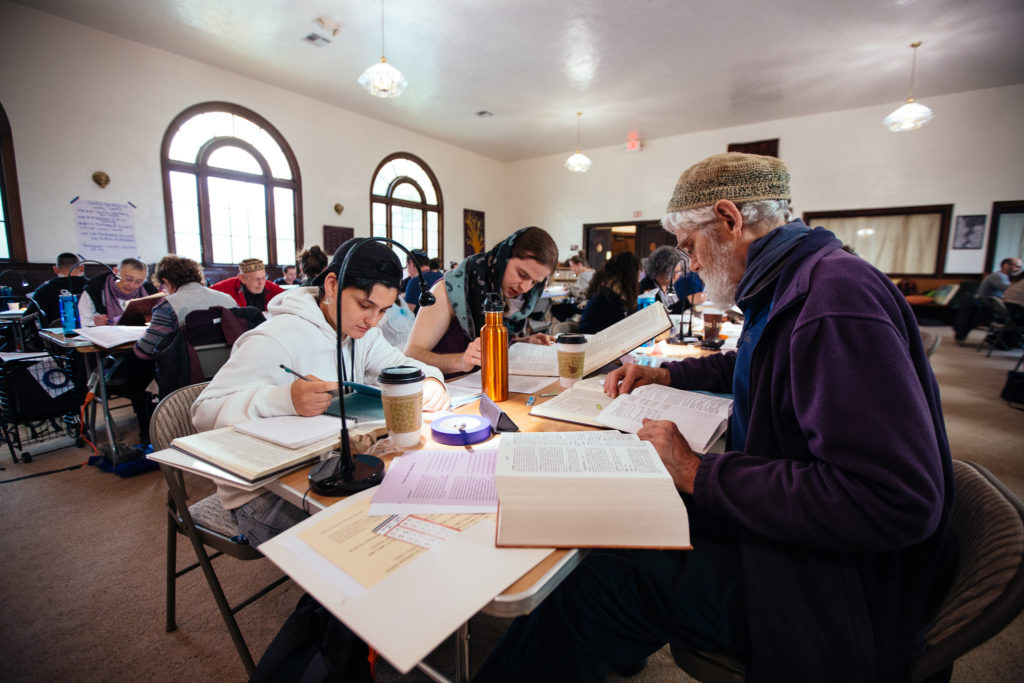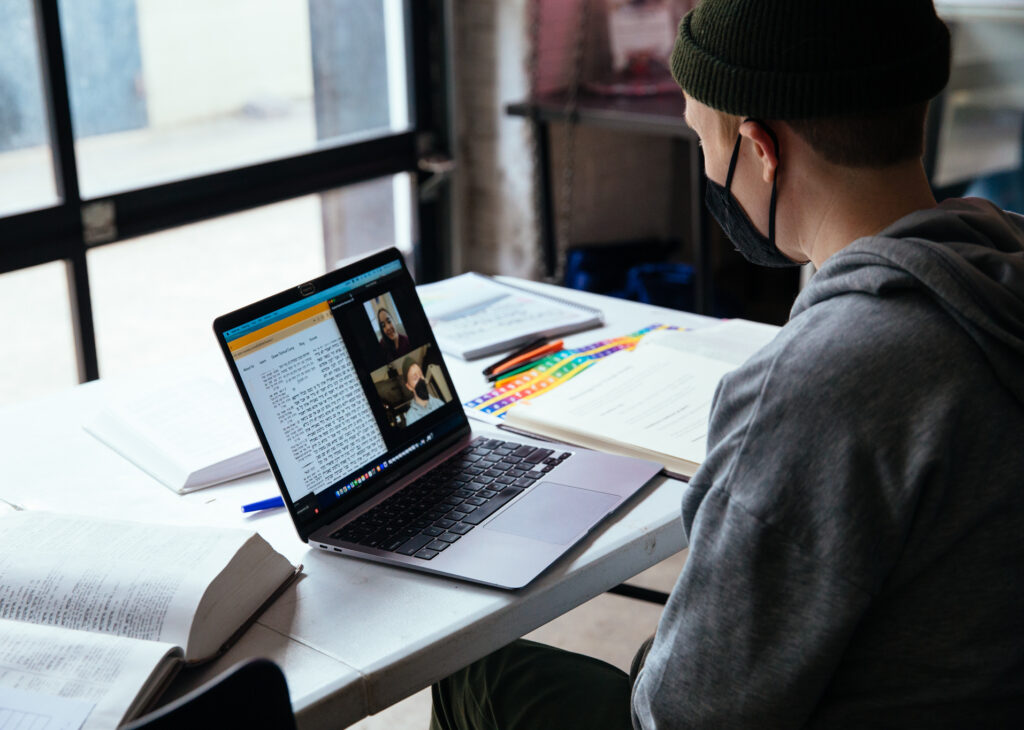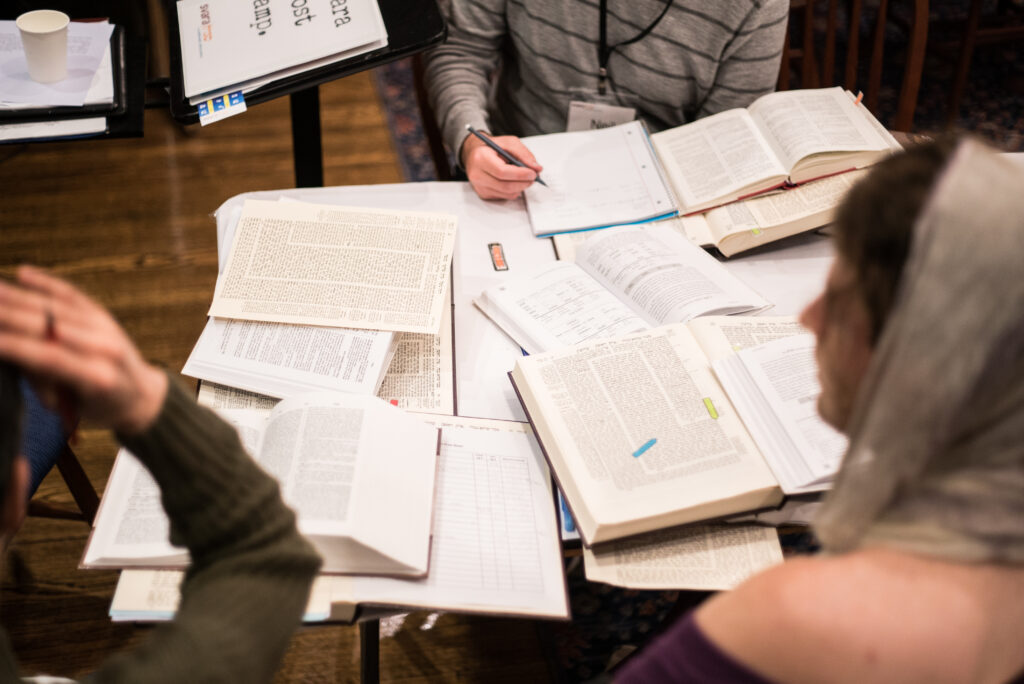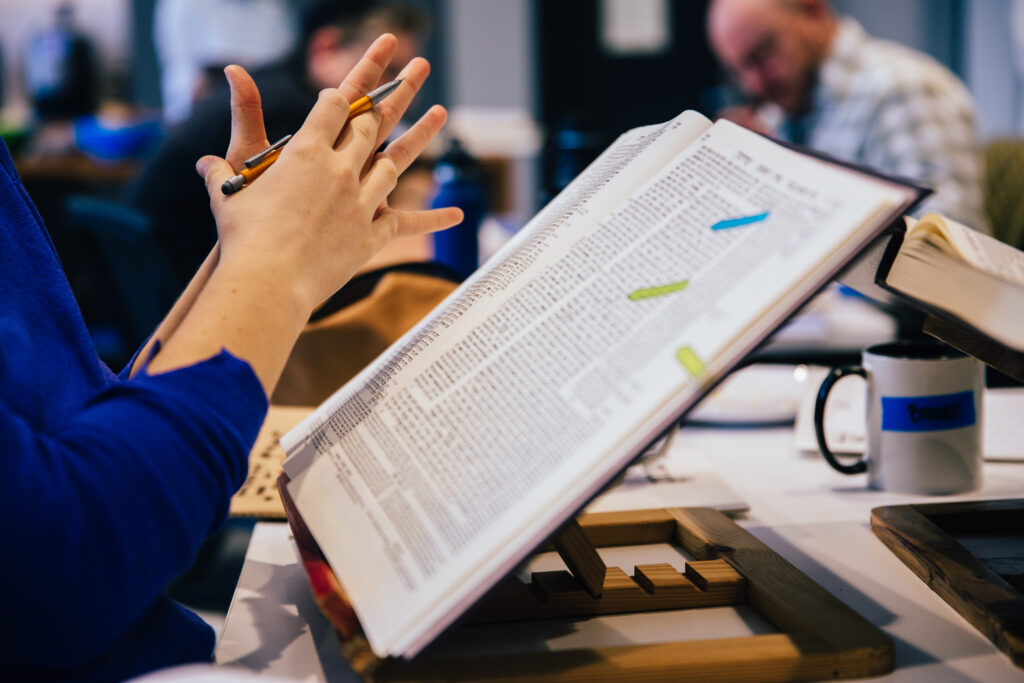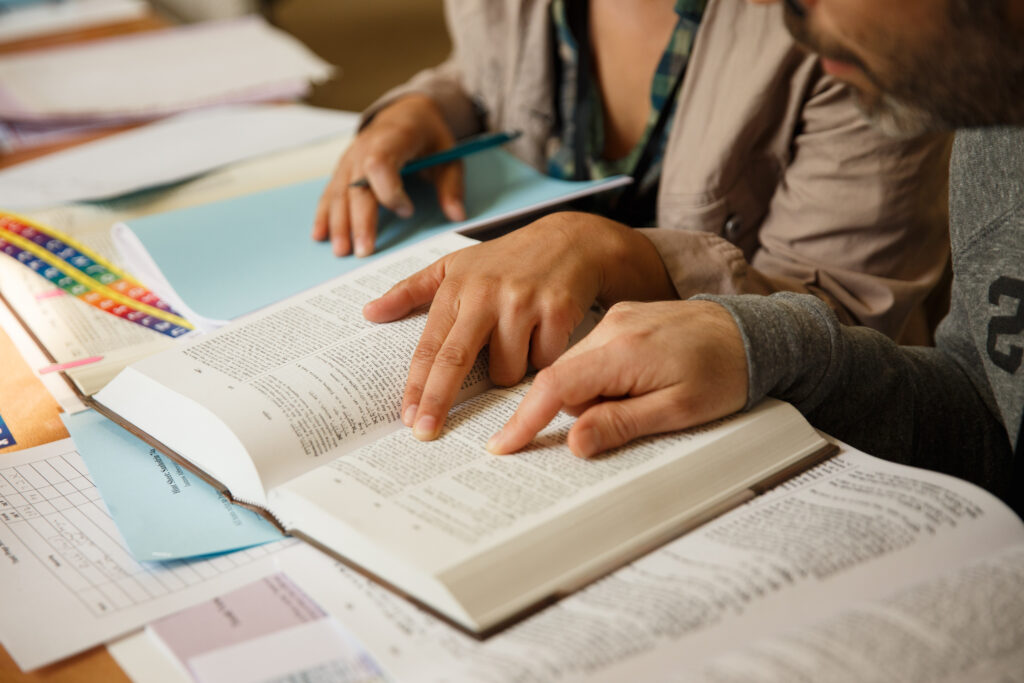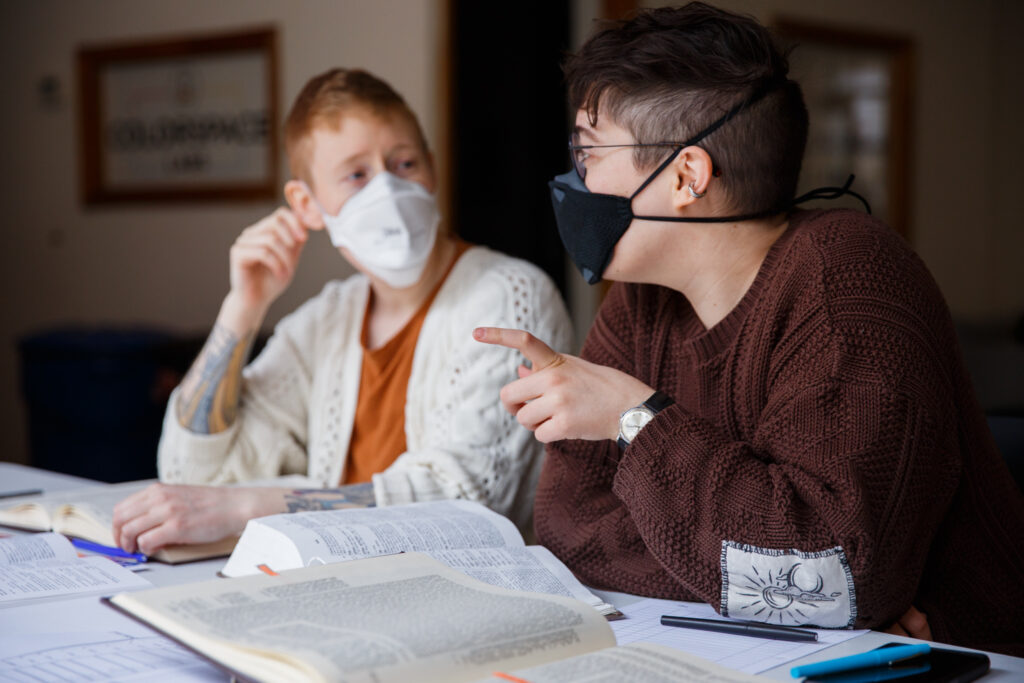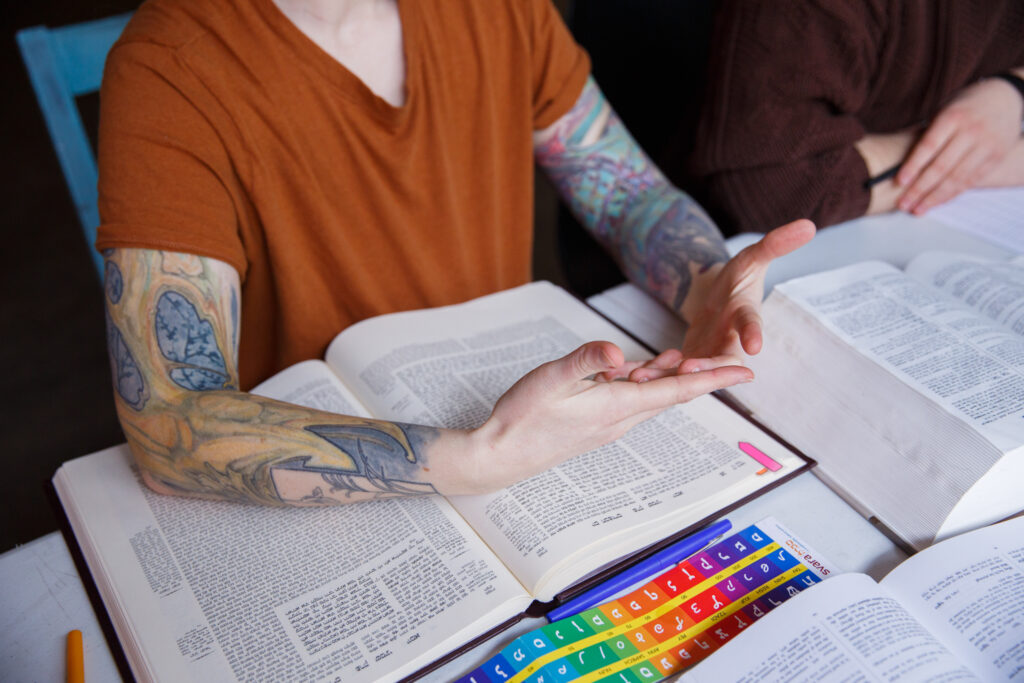My journey to becoming part of the SVARA community began in the summer of 2015, at a program that would later evolve into Queer Talmud Camp. Walking into the SVARA bet midrash, feeling the electricity of the space, I was both incredibly excited and profoundly disconnected. I had just completed my second year of rabbinical school and the enormity of that accomplishment (particularly as a blind learner in the days before Sefaria, when getting accessible texts felt impossible) was overshadowed by the feeling that I could not get my head above water. Like so many students, my semester had not gone the way I had hoped. I was wondering whether learning was even in my wheelhouse. Learn and love Talmud? Lishma? Is that an actual thing I can engage with? Would I even fit in? I’m a weird combination of things, after all. Would I be met with compassion around my learning needs or my Jewish practice? Would I be too frum? Not radical enough? And what about disability accessibility? I knew I would likely be the only blind learner, but culturally speaking, was accessibility even on the table at SVARA?
As those doubts swirled, I was tentatively allowing my excitement—and dare I say curiosity—to build. I was going to embark on an adventure in so many senses of the word.
Hearing the crash talk, I found myself asking about the crashes of my own life. What did it mean for me to be an “option three” person, even as I was seriously contemplating “option two”? Did this mean that the master story I held about myself – that learning Talmud was, on a good day, a fool’s errand – would inevitably crash?
I clearly recall my anxiety around being matched with a chevruta on my first day of bet midrash learning. Jastrow and Frank dictionaries were, at that time, completely inaccessible to me as a Braille reader. I didn’t want to make my chevruta look up all the words. Would I just be a freeloader? (Two points for internalized ableism!)
I ended up finding matches that worked and, as a part of the magic that is the chevruta relationship, I found ways to ensure our learning was mutual and reciprocal. Even so, I struggle to this day with chevruta learning, even as I know it to be a sacred Jewish practice.
The first shiur opened with the beautiful ritual of receiving the masechet. I already had all of the materials I needed in Braille and didn’t expect to get a printed masechet. When Benay approached me and placed the masechet on the table in front of me, reminding me that “this is yours,” I experienced a welling up of emotion I didn’t expect. The Talmud belongs to me, too. It was so simple and yet so earth-shifting. I had always felt like I was five steps behind. Clearly, obviously, Talmud is for those other people, not for me. Never for me.
As we continued our morning, we learned about the SVARA method. We would be using the standard Vilna Shas edition of Talmud, and no outside translations were permitted. We were to make meaning of every word, and go word by word, grammatical aspect by grammatical aspect, so we could create our inside and outside translations.
No outside translations?! Finally! I felt overjoyed knowing I would have the same shot at learning and meaning-making because we were not using translations that were written by others, to which I had no access at the time. We were all starting from the same beginner’s mind, regardless of prior exposure to learning. At that time, English translations of the Talmud barely existed in digital form and those that did were so difficult to understand that they were rendered useless to me. I had often felt that I was learning with such a steep resource disparity that I wondered if it was even worth it. What were the psychological and spiritual costs of continuing to learn in suboptimal ways? In the SVARA bet midrash, however, I could engage with this method. Understanding every word from the inside out is what I needed. Learning how to craft my own translations and understandings meant that I was no longer passive, trying to collect information and spit it out later. Instead, I was actively making sense of this ancient, holy tradition.
For the first time in my learning journey, the edition of the Talmud I was using was equivalent to everyone else’s. This is never a given. Many in the blind and low vision communities speak of the book famine, by which we mean that only 10% of all published works are made accessible. This often means we are forced to choose a resource that is hugely out of date or, worse, falling apart and poorly printed. It certainly does not need to be this way! My passion for text accessibility for everyone is directly linked to my love of learning. I think it’s prudent to note that I am writing from a place of tremendous privilege, even as I am impacted by this book famine. I have had my own Braille embosser for decades, which allows me to Braille practically anything I want or need. This has allowed me to learn extensively, something I cannot take for granted.
Learning at SVARA, knowing that I would begin where everyone else began, allowed me to relax a bit. Ok, I thought, maybe, just maybe, this is a thing I can do. Maybe I can find a way to be in relationship with Gemara as the amazing spiritual technology that it is. Maybe I can even come to love this. That felt like a pipedream, at best, but an aspiration I wanted to strive for. I also knew in my kishkes that the teachers at SVARA wanted me in the room, were invested in me as a learner, and that we were in this for the long haul, together. This does not mean that differences and growing edges were not present over the years. It simply means that we worked to navigate even the toughest moments, and indeed there were a few. I pray that we all emerged with deeper appreciation for one another.
Internally, I had to learn to accept that when someone said that I was included and wanted, that it was sincere. This was one of the most profound learnings for me, and remains so.
I have been thinking a great deal over the past few years about belonging—what it is, how we get there, and how we accept our own belonging. In my own experience, belonging has often felt wholly inaccessible to me. My default perspective has been that of an outcast, someone pushed aside and uninvited. Perhaps that is my flawed master story, one that I internalized during childhood, and one that needs to crash, badly! Or, perhaps, dare I say, it has already crashed! Belonging is not a simple or linear process. It ebbs and flows, it moves and changes, as do we. Indeed, it’s the only constant.
I still struggle with my own feelings of enoughness, and with a sense of alienation and disconnection. I am grateful for the continued cultivation of skills to work through these feelings when they arise. It is my deepest prayer that all of us, no matter where we are on our unfolding journeys, come to know the truth of our own belonging, as the Buddhist teacher Sebene Salassi so beautifully describes it. May we find the spaces and places that bring out the best in ourselves, so that we may continue to transform this beautiful tradition.

